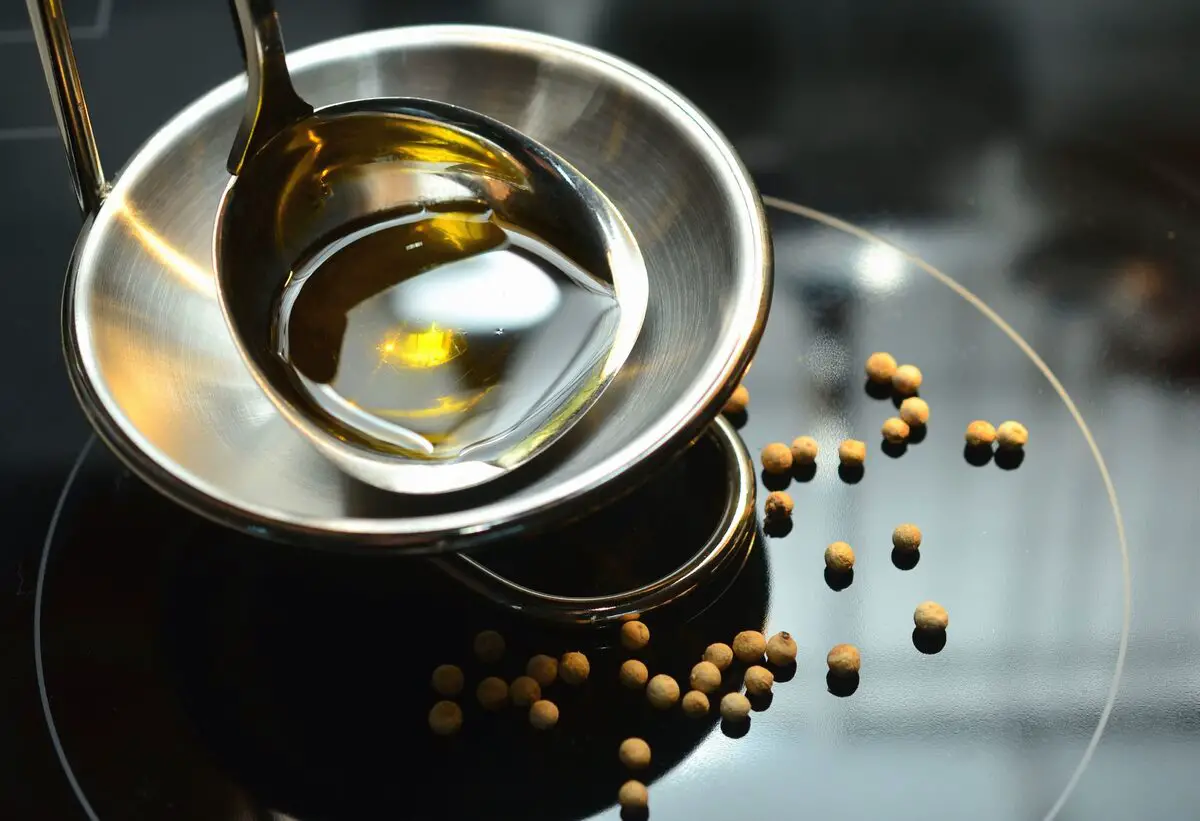It is possible to compost leftover cooking oil in very small quantities, and if it is a vegetable oil such as corn oil, olive oil, sunflower oil, or rapeseed oil. When too much vegetable oil is added to compost, it slows down the composting process.
Table of Contents
Should you compost leftover cooking oil?
The answer to this question is technically yes since all organic matter can be composted. It must be noted, however, that some waste is more complex than others, which directly affects how long it takes to break down.
As oil falls into this ‘more complex’ category, it will take longer to break down than, for example, fruit and vegetables.
Many individuals recommend against composting oils because the average home compost pile is not hot enough to break down more complex materials such as oil.
As a result, your compost heap will begin to rot, attract rodents, emit foul odors, reduce airflow, displace water, and ultimately threaten the compost’s life.
To ensure that your compost remains healthy, the real question is how much you can add.
The compost pile will be able to absorb it if you add just enough to allow it to participate in the composting process actively.
What types of oils can be composted?
A few cooking oils can be composted in small quantities, but most should not be composted.
As long as they have not come into contact with any forbidden food products (such as meat, cheese, fish), vegetable oils such as rapeseed oil, canola oil, sunflower oil, corn oil, coconut oil, rapeseed oil, peanut oil, or olive oil can be composted in very small quantities.
You may add a bit of oil you have soaked up with a kitchen roll, but do not add the contents of a deep fat fryer to your compost pile.
What oils to avoid?
Synthetic oils should never be accidentally composted. Cooking oils and bacon grease should be avoided.
The grease from bacon can attract rodents to your compost pile, where they will feast on the materials. Additionally, it has a potent smell, which is the smell of bacon, and every rodent will desire to consume this meal.
You should also avoid composting used cooking oils as they attract unwanted pests. These pests will dig up the compost pile and destroy other materials in the pile as a result.
Don’t add the following types of oil to your compost bin:
- Synthetic oils
- Used oil
- Gravy
- Lard
- Bacon grease
- Canned fish oil
- Sauces and juices left over from cooking
Can you add oil to any type of compost?
It is possible to add vegetable oil to most types of compost bins, but only very sparingly. Vegetable oil can be added to vermicompost, but use your judgment.
To avoid harming the worms, it is best to start with a very small amount. If you want to throw in a greasy paper towel used to wipe a cooking pan, you may do so.
Oil in large quantities will destroy your compost. Oils such as frying, lard, and old cooking oil should not be used.
Any other way to dispose of oil?
1. Recycle large amounts of cooking oil for use in the kitchen
Why not strain and store the mixture for future use in the kitchen?
Both animal fats (bacon, beef) and plant-based fats (olive oil, sunflower oil) can be used in this manner.
The latter, however, must not exceed its smoke point. As a result, it will not be suitable for re-use.
- Use a strainer, fine sieve, coffee filter, or cheesecloth to filter the oil to remove any leftover food scraps.
- Store the oil in an airtight container in the refrigerator after it has cooled to room temperature.
- Please ensure that the date and type of oil are clearly marked on the container.
- You should separate different types of oil (you would not want to deep-fry donuts in fish oil).
- It is safe to use the oil a couple of times.
- If not, strain through cheesecloth and store in an airtight container.
2. Make Soap
3. You can give it to your pets
Adding a small amount of oil to your dog’s food will ensure a shiny coat, and he will love it (and don’t worry, he will burn off the extra calories).
If you prefer, you can use solidified fat in bird seed and stuff it into an old stocking to serve as a bird feeder for the birds.
4. Make biodiesel fuel
Some commercial users can recycle their cooking oil as biofuel, but this is not a viable option for home cooks.
5. Curbside and drop-off recycling
Find out what options are available for oil disposal in your local area.

